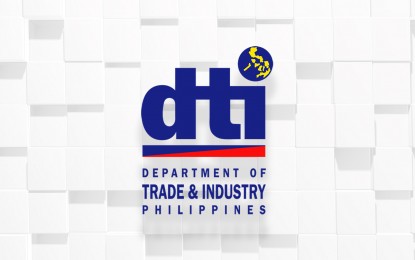
MANILA -- The Philippines should work on reducing restrictions on foreign direct investments in order to benefit from opportunities amid the trade war between the United States (US) and China, according to a trade official.
Marie Sherylyn Aquia, chief of Multilateral Relations Division at Department of Trade and Industry (DTI) Bureau of International Trade Relations, said the department has launched various initiatives to increase the country’s participation in the global value chain (GVC), and help the micro, small and medium enterprises (MSMEs) become competitive.
“(But) there is a lot that needs to be done,” she said in a press conference Wednesday as the Philippine Institute for Development Studies (PIDS) launched the Development Policy Research Month celebration.
“If we do not do anything about, if we do not respond properly, we will be affected negatively. We need to compete not just among ourselves, among our MSMEs, but we need to compete with our Asean partner. A lot of them are really taking advantage of the trade war, they are in a better position compared to us,” she added.
Aquia particularly cited pending legislation, the Corporate Income Tax and Incentives Reform Act (CITIRA), formerly called Tax Reform for Attracting Better and Higher-quality Opportunities (Trabaho) bill, which aims to reduce corporate income tax and rationalize tax incentives.
She pointed out that the passage of CITIRA will provide business confidence.
“We cannot compete with subsidies and also the different investment opportunities (offered) by our neighbors, including Thailand and Vietnam. But if we are able to pass this Trabaho bill which will certainly do a long way in terms of providing certain incentives to corporates and also lowering corporate tax, it will help us invite more investments and more investors into the country,” she added.
According to Mahinthan Joseph Mariasingham and Paul Neilmer Feliciano of the Asian Development Bank, the US-China trade war could benefit the Philippine manufacturing sector as electronics is one of the sectors that is highly integrated into the GVC.
However, this is only possible if the Philippines could attract foreign investments and businesses from tariff-affected countries, they said.
To boost investments, Aquia also underscored the need to expand the economic zones.
“There is also the shortage of viable locations near the current ecozone clusters. This is important for our exports are coming from the PEZA (Philippine Economic Zone Authority) ecozones so there is a need to secure the expansion of ecozones outside of Metro Manila,” she said.
Aquia further said it is also imperative to implement properly the Anti-Red Tape Act (ARTA) or the Ease of Doing Business Act.
With the acceleration of global trade amid new globalization, Aquia said the DTI is finding other overseas markets for local products, apart from the US and China.
“What we are doing is, we are trying to tap other markets, we are looking to the European side. We are also strengthening our cooperation with our neighbors, the Asean. Even they are competitors, they are also our partners,” she said.
“We are (also) trying to complete the negotiations on the RCEP (Regional Comprehensive Economic Partnership),” she added.
Once concluded, the RCEP agreement will be the world’s largest free trade deal. It is a deal between Asean countries and the bloc’s six free trade agreement (FTA) partners -- China, Japan, South Korea, India, Australia, and New Zealand. (PNA)
